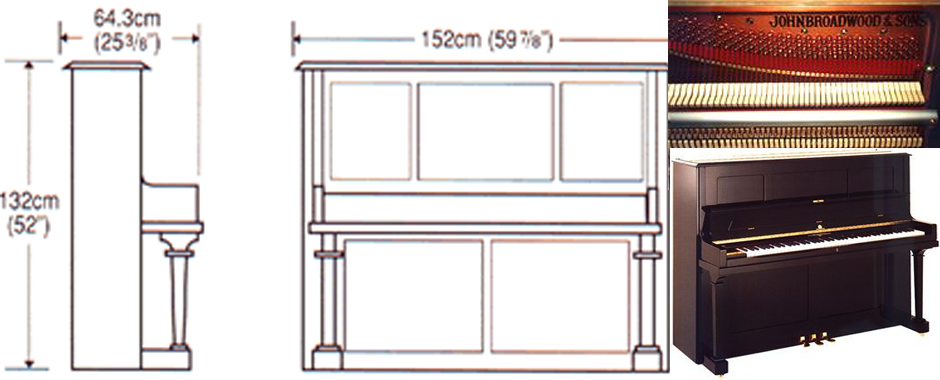
Mobile 07502277327




Here at To the Tune of Pianos, we love your piano as much as you do. Below are a few Frequently Asked Questions. This is not meant to be an exhaustive list of all the questions you may have so, please do contact us if you require any further information or to book an appointment with us for your piano to be tuned.
The beautiful, natural sound of a piano is due to the remarkable blending of such materials as wood, metal, buckskin, and wool. Together they create a uniquely timeless sound that no other instrument in the world can duplicate. While electronic synthesizers may approximate the sound of an acoustic piano, they cannot approach the true beauty of the real thing.
Pianos in A Domestic Setting: Prices start from £70.00 for a piano which has been tuned regularly, up to £100 if the piano has not been tuned for a while and requires more attention. Refer a friend and you can both receive a discount on our standard prices when both of you take up our services.
Concert Venues; Theatres; Schools: Contact Us for your specific requirements and we will provide a quotation on request. Discounts on our regular pricing apply when there is more than one piano in a venue or you make a regular booking with To the Tune of Pianos.
Churches, Charities, Students and people aged 65 and over: We offer discounts on our standard pricing for you. Please Contact Us for more information.
This question is by far the most frequently asked of us by our customers.
Most manufacturers recommend servicing at least two to four times a year to keep the piano sounding good and working properly each time you sit down to play. This is especially important the first year of your piano’s life.
Steinway and Son put it best: “You, however, are the final judge and should have the piano tuned as often as you think necessary. To put the matter of tuning into perspective, remember that a concert piano is tuned before every performance, and a piano in a professional recording studio, where it is in constant use, is tuned three or four times each week as a matter of course”.
A piano which has gone a long time without tuning may require extra work inn pitch raising.
Piano tuning is the adjustment of the tuning pins so that all the strings are of the proper tension (pitch), to have the correct sounding, musical intervals.
An out-of-tune piano or an unresponsive touch can discourage even novice musicians. Regular maintenance also can prevent expensive repair in the future.
As with any piece of fine furniture, keeping drinks off finished wood surfaces is a simple rule always to follow. New piano finishes generally require only occasional cleaning with either a dry or damp cotton cloth.
Older piano finishes may benefit from an occasional polishing with a good quality polish, but frequent polishing is not recommended.
Extreme swings from hot to cold or dry to wet are harmful to your piano. Dryness causes the piano’s pitch to go flat; moisture makes it go sharp. Repeated swings in relative humidity can cause soundboards to crack or distort. Extreme dryness also can weaken the glue joints that hold the soundboard and other wood portions of the piano together. Moisture may lead to string rust. A piano function best under consistent conditions which are neither too wet nor dry.
Room humidifiers and dehumidifiers, as well as systems designed to be installed inside of pianos will control humidity-related disorders.
Use only a professional piano mover to move your piano. You will avoid injury to yourself, your instrument, and your home.
